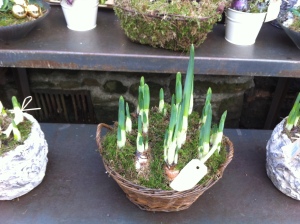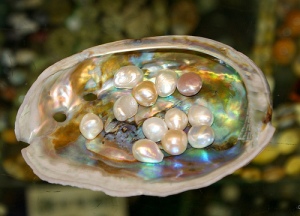
I’ve been reading Chris Guillebeau’s great post, ‘The Agenda Part II: The Individual as Hero’ about how it’s okay to pursue your big dreams, invest in yourself and understandable that you have difficulty explaining the reasons for your quests to others:
You don’t have to apologise for pursuing a big dream, because a distinguishing feature of such things is that not everyone relates to them.
Chris talks about the Olympics, marathon runners and other sports people among his heroes. I acknowledge these journey and achievements, but like Chris says, they are not the heroes I relate to. My heroes are writers – their stories are the ones I read, treasure and follow.
For me, there is something incredibly heroic about the writer’s life and journey. This is because it is my goal: to write and publish work of value that speaks to others: poetry, novels, creative non-fiction. This blog is part of that goal – getting me writing and connecting with writers – but the real goal is larger and more compelling, hard to explain, talk about and justify, but I know it’s what makes sense and connects the dots for me. I know it’s elusive and also very hard work, but it’s when I am writing that I feel truly alive and myself. So today, following Chris’s lead, I celebrate the writing heroes who inspire me.
My writer heroes fall into two categories:
- Published, famous writers whose books I read and biographies I study assiduously
- My blogging heroes who are all out there creating now and inspiring me
In this post, I’ll concentrate on the first category; next post, I’ll talk about my blogging heroes also writing books right now and documenting their journey.
My published and famous writing heroes’ lives intrigue me for their romanticism, their lyricism and their commitment to craft and writing practice. They embody what I aspire to. They are mostly women; today’s list of my key writing heroes is all women. Their stories of how they strived to balance work, family, creativity and their craft are often difficult journeys. There are themes of obsessive love, drugs, alcohol, mental illness, suicide, struggling to make ends meet, trying to write while making a living, reclusiveness and withdrawal. There are also themes of: success, achievement, the pursuit of perfection, hard work, constant crafting, connection with people, being in the literary milieu of an age, publishing and public readings attracting many.
For these heroes, it was mostly a battle for their creativity to be expressed in the works that endure. I am grateful for their determination, their quest and the lyricism of their work that speaks to me over the years. It is because these heroes understood the ‘big dream’ and lived it that they mean so much to me. I celebrate these six heroes:
Daphne Du Maurier
I love Daphne Du Maurier’s sheer prolific work, diversity, narrative and story-telling skills and her dedication to her craft. Her unique vision created historical fiction, psychological thrillers such as ‘Rebecca’ and ‘The Birds’ and wonderfully innovative works such as ‘The House on the Strand’ which blends historical and psychological fiction together in a narrative about experimenting with hallucinogenic drugs way before it was fashionable. I am absolutely in awe of Daphne’s writing skills and writing life. My journey to Fowey in Cornwall where she lived was a pilgrimage and to be there taking the ferry across to Fowey and walking the narrow streets was thrilling. There are some excellent pictorial memoirs of Daphne Du Maurier’s Cornwall and the country that inspired her.
Suggestions to read: Rebecca, The Birds and other stories, The House on the Strand, Pictorial memoirs: Daphne Du Maurier Country – Martyn Shallcross; Daphne Du Maurier’s Cornwall – by Daphne Du Maurier.
Virginia Woolf
Virginia Woolf’s novels are wonderful but I especially am inspired by her non-fiction, essays and diaries. ‘A Room of One’s Own’ is sitting here in front of me on my rolltop and is never far away. ‘Three Guineas’ is a favourite thought piece on war and also women; Virginia’s writing on women and writing excite and support me as the pioneering work they are. These works explore the barriers that women face in attempting to produce literature and help to understand the challenges in the dream of being a writer especially as a woman.
Suggestions to read: A Room of One’s Own, Three Guineas, Virginia Woolf: Women and Writing (The Women’s Press collection)
Sylvia Plath
I love Sylvia Plath’s poems for their genius, craft and power. Her poetry has had the most impact on me of any poet and I am thankful for her body of work and what she achieved in such difficult circumstances. I especially love the books that shows Sylvia’s mind at work as she edits and crafts her poems, the precision of it, the artist at work.
Suggestions to read: Sylvia Plath: Collected Poems, Sylvia Plath: a Critical Study – Tim Kendall (Faber & Faber) – for some wonderful copies of original drafting processes on poems
Emily Dickinson
I love Emily’s reclusiveness, her unique voice, her secretive commitment to her craft, her pearls created. The sheer volume of work created without an immediate audience is staggering showing a complete commitment to her individual vision and style. The story of her life is fascinating and worth a read for the contexts in which she was creating the work we now know and value.
Suggestions to read: The Life of Emily Dickinson, Vols 1 & 2, Richard B Sewall (Faber & Faber).
Elizabeth Smart
‘By Grand Central Station I Sat Down and Wept’ is one of my favourite books for its sheer poetic power. A novella, ‘a cry of complete vulnerability’ as my copy says on the back. The story of Elizabeth Smart’s life is about balancing love, writing, creativity, children and a fight for self-expression. The narrative of her life is about ‘the experience of being a woman artist in the middle of the century.’ (Sullivan – below p xi) I wish she’d written more but I know it was difficult with how life played out and the choices she made, but I treasure ‘Grand Central Station’ as a classic novella in the style I would like to write in.
Suggestions to read: By Grand Central Station I Sat Down and Wept, By Heart: the life of Elizabeth Smart – Rosemary Sullivan (Flamingo)
Edna St Vincent Millay
I love Edna St Vincent Millay’s romantic lyricism, her sonnets and her commitment to form. She was amazingly well-known in her time – the most famous poet of the Jazz Age and the image of ‘the new woman’. She was incredibly committed to her art and lived an extraordinary life for her times, taking many lovers of both sexes. Her poetry was widely celebrated with her poetry readings often sell-outs with around 1600 people attending in some cases and her collection of sonnets, ‘Fatal Interview’ selling 35,000 copies in the early weeks of release in the middle of the Depression. The beautiful photo of Edna St Vincent Millay when young surrounded by blossoms graces my desk here and inspires me.
Suggestions to read: Savage Beauty: the life of Edna St Vincent Millay – Nancy Milford (Random House)
These are my heroes, my heroines. I didn’t seek out for them to be all women but they are. I love them for:
- their commitment to their craft and art
- the narrative of their writing lives
- their passion and love for writing
- the works they have created
- the lines that make my heart sing
- the ideas that support me
Especially I love them for being my heroes, the female role models of the ‘big dream’ of writing because they understood it and lived it.
Image, Vintage Underwood Number 5 typewriter by emilydickinsonridesabmx from flickr and used under a Creative Commons license with thanks

Like this:
Like Loading...
![]()








‘Get to know your blog and what it’s about and let it develop organically. I have taken that route and it’s been real fun and now I’m getting right into it naturally. You want it to be enjoyable not a chore.’
Yes, I think that is exactly the point: enjoy yourself, your blog and what it’s creating in the process. And that is something I am enjoying immensely and is perhaps the true heart of the matter.
People who honestly mean to be true really contradict themselves much more rarely than those who try to be ‘consistent’.
Oliver Wendell Holmes
Image, Morocco, Marrkech, Pattern by Frank Douwes from flickr and used under a Creative Commons license with thanks